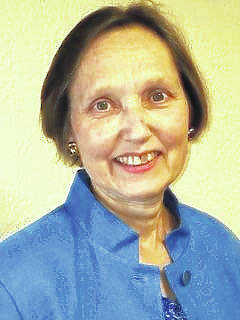
“Follow the money” is generally pretty good advice – but sometimes it is even simpler. Sometimes you can just follow the headlines. Take the recent Gazette headline: “Ohio Wesleyan University adds new education major.” That should be quite enough to set your antennae atwitter, if you are aware of how little solid knowledge remains amid the construct-your-own-understanding approach that has frustrated both teachers and students for too many years. Strangely contradictory is the widely accepted belief that students are sent to school so that more knowledgeable people, once acknowledged as teachers, can actually teach them.
Certainly my first instinct was to wonder: “Is another newly invented major really what the future teachers of our children need?” Actually, that was not quite the wording that sprang to my mind, but I am trying to be polite. When I read that the course of study was “Integrated Science for Teachers, a new major that will prepare secondary school educators to teach a broad range of science subjects,” I saw that the educrats had triumphed again.
Let me explain. First, there is no such thing as “integrated science.” There are a number of distinctly separate scientific disciplines, each with its own distinctly different vocabulary and distinctively appropriate methodology. There may be some overlap, but these are not cake ingredients that can be mixed up without regard to make batter. An “integrated science” major fails by definition.
In addition, labeling the Integrated Science major “for Teachers” makes it clear that this is not a serious science course. It is an artificial education department construct, to satisfy an artificial educational system demand.
It is interesting that on the one hand, the educational establishment regularly proclaims that today’s increased scientific knowledge demands an increased emphasis on science and technology. On the other, they wish us to swallow the idea that one teacher can be comfortably conversant with not just one or two, but multiple branches of science all the way up through Grade 12. Even in less technological times, General Science stopped at Grade 8 or 9. In the higher grades, science was taught by teachers who specialized in just one, or if the school were very small, two branches.
To be able to ignite that spark of enthusiasm or intellectual curiosity that makes learning worthwhile, a teacher must have in-depth knowledge and a deep appreciation for what he or she is trying to communicate. Mashing together distinctively separate spheres of knowledge prevents a learner from laying down a foundation of the particular expertise required for any of them. The old adage, “Jack-of-all-trades, and master of none,” describes the drawbacks all too well.
What could explain this degradation of science education in the face of all the proclamations about the need for more science and technology learning in schools? Let’s see what the chair of OWU’s Department of Education has to say. She states that this new major will “meet the need of today’s school districts.” Ah. Nothing there about meeting the needs of actual students who might want to learn actual science, so as to be able to become actual physicists, chemists or biologists. No, this creation is to satisfy an institutional “need.”
Another OSU Department of Education Ph.D. is also quoted. She is the Department’s Director of Adolescent to Young Adult and Multi-Age Programs (Not that it is her fault, but could anyone who cares about real children ever come up with a title like that?). Her justification for the new major is that “Fewer and fewer schools have the resources to hire discipline-specific science teachers. … We want these schools to seek out our graduates when hiring.” Again, the main purpose given is to satisfy institutions, and thereby generate jobs for OWU graduates. Most of these institutions, that is, our local schools, seem able to come up with funds for all kinds of additional personnel, not to mention rather spectacular sports facilities or other building projects, yet apparently decide that providing a child with a solid foundation of the knowledge that will serve him for the rest of his life is expendable.
Later in the article, she does mention the hope that integrated science grads would “inspire their students to explore and excel in all disciplines of science.” This, unfortunately, is pure fantasy, and she must know that. A mishmash of bits and pieces is going to inspire no one. The lack of coherent foundational knowledge will only trap children in a prison of perpetual ignorance.
Failed theories have already been used to push whole language reading, Stone Age arithmetic, Integrated math, and all manner of interdisciplinary projects that work to demolish a child’s opportunity to acquire specific subject knowledge. The educational elite, enabled by puffed up politicians of both parties, happily ignores the ineffectiveness of these “progressive” ideas. Integrated Science will be just one more incoherent hybrid to hit the pile-up of previous educational wrecks.
The article closes by touting the approval of several educationalist organizations, including the all too familiar villain, the Ohio Department of Education. Yes, ticking all the right boxes for educationalists and institutions appears to be the misguided goal here. Forget about all those flesh-and-blood kids. These planners go beyond even Marie Antoinette’s “Let them eat cake.” No, no. Froth will do fine. Let them eat froth.


